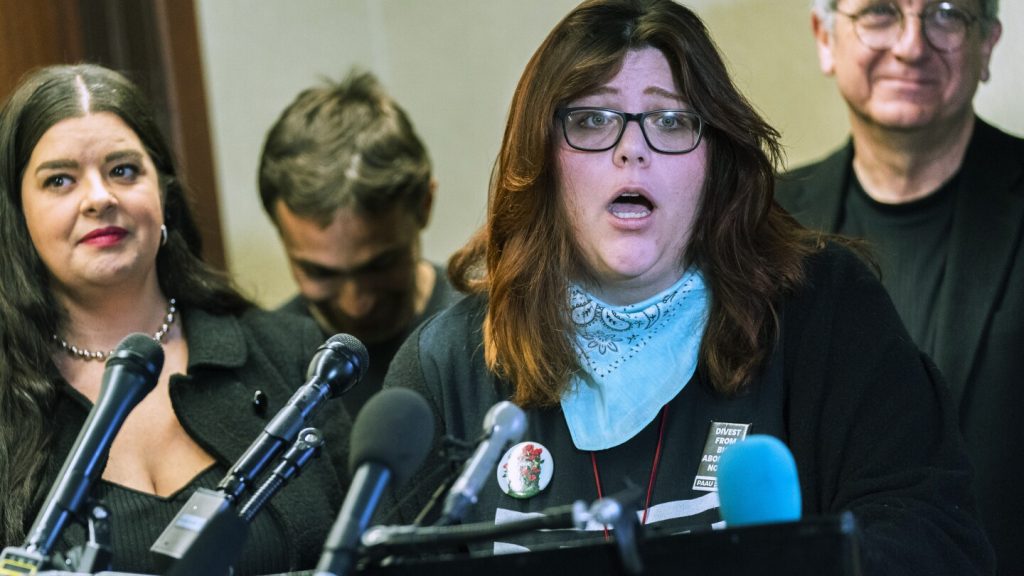An anti-abortion activist, Lauren Handy, was sentenced to nearly five years in prison for leading an invasion and blockade of a reproductive health clinic in Washington, DC. Handy, along with several others, was found guilty of federal civil rights offenses for hindering access to the Washington Surgi-Clinic on October 22, 2020. Police discovered five fetuses at Handy’s home in Washington after she was indicted. During the blockade, a clinic nurse suffered a sprained ankle, and a woman in labor was accosted, preventing her from entering the clinic.
Handy was sentenced to four years and nine months in prison by U.S. District Judge Colleen Kollar-Kotelly after declining to address the court. Prosecutors had recommended a prison sentence of approximately six years, describing Handy as an anti-abortion extremist and a “criminal mastermind” behind the Washington invasion and similar attacks on other clinics. Despite her beliefs, the judge emphasized that Handy was being punished for her actions, not her beliefs. The blockade organized by Handy was live-streamed on social media and lasted several hours before the participants were arrested by the police.
Handy was convicted of conspiracy against rights and violating the Freedom of Access to Clinic Entrances Act. Defense lawyers had requested a one-year prison sentence for Handy, who has been in jail since her August 2023 conviction. They portrayed her as a compassionate activist who cares deeply for vulnerable communities and aims to empower those who feel powerless. Handy’s co-defendants, including Jonathan Darnel, Jay Smith, John Hinshaw, and others, were also sentenced to prison terms ranging from 10 months to 27 months by prosecutors. The defense argued that these individuals, including Handy, were not intentionally trying to harm anyone and should be allowed to return home.
Handy’s invasion of the Washington clinic involved planning and recruiting participants through social media. She used a false name to book a fake appointment at the clinic on the day of the invasion. The defendants forcibly entered the clinic while live-streaming the blockade. Handy obstructed the entrance with a rope and briefly acted as a police liaison outside the building. The judge criticized Handy and her co-defendants for showing no compassion or empathy towards the patients who were denied care that day. Apart from the Washington clinic, Handy and her accomplices also blockaded reproductive health clinics in Maryland and Virginia.
Handy’s attorneys highlighted her involvement in a nonprofit organization called Mercy Missions, which assists families and mothers in crisis pregnancies. She also joined a group called Progressive Anti-Abortion Uprising before her arrest in March 2022. The sentencing of Handy’s co-defendants, who were involved in the clinic blockades, varied with prison terms ranging from 10 months to 27 months. Despite efforts from defense lawyers to portray Handy and the others as individuals with good intentions, the prosecution emphasized the harm caused by their actions and the trauma experienced by the victims of the blockades. Handy’s sentencing reflects the legal consequences for extremist activism that crosses the line into criminal behavior.


